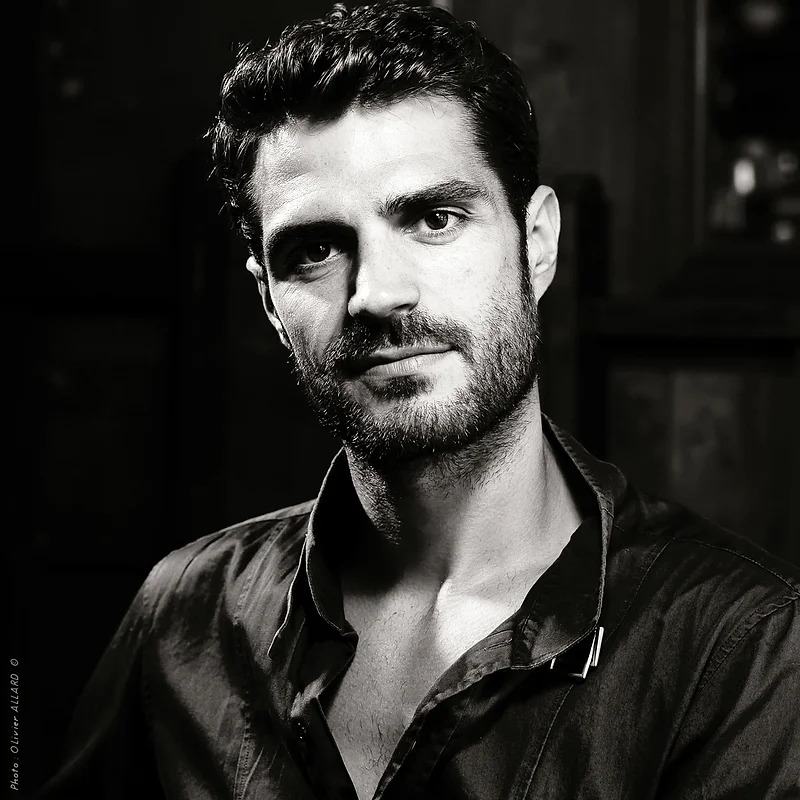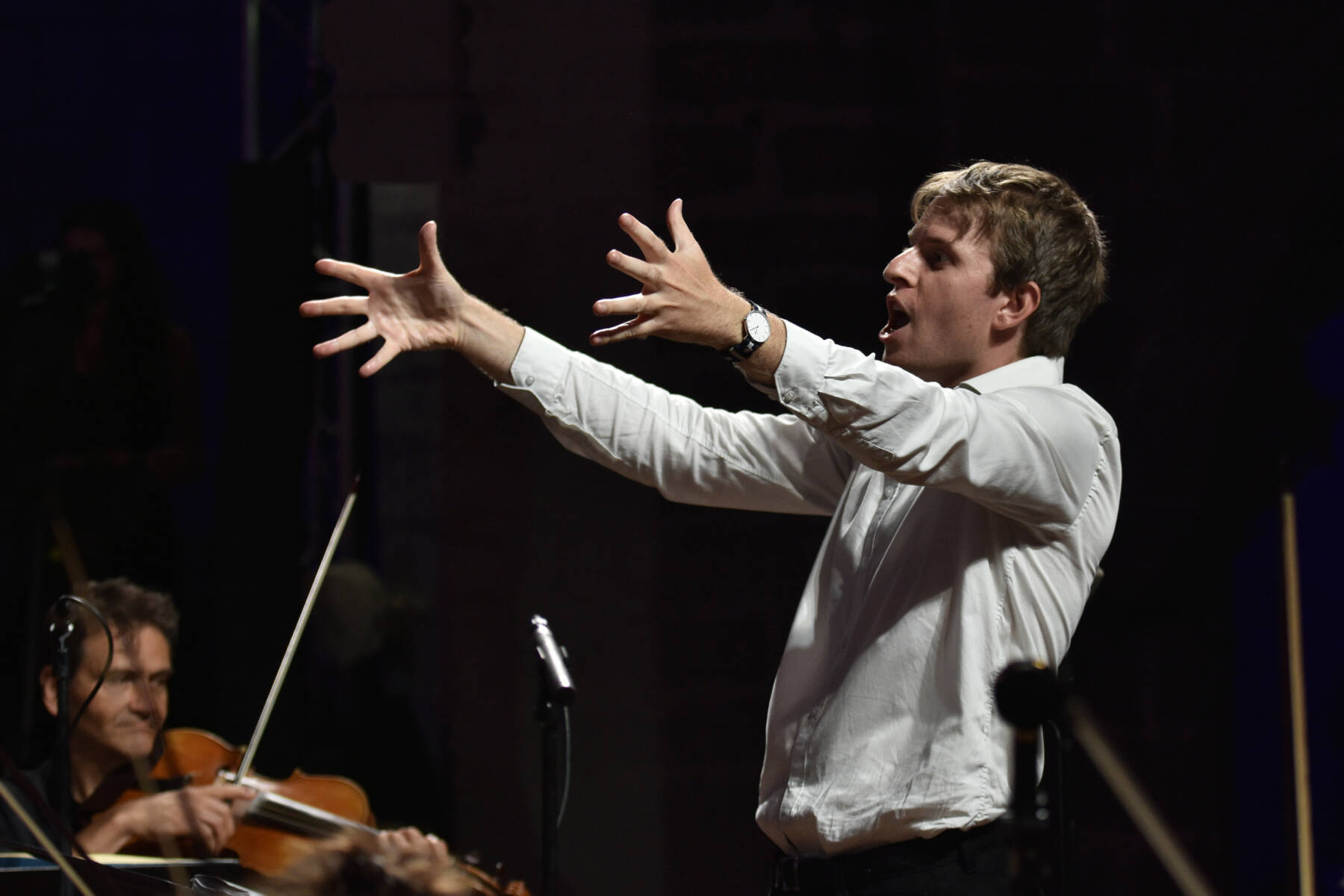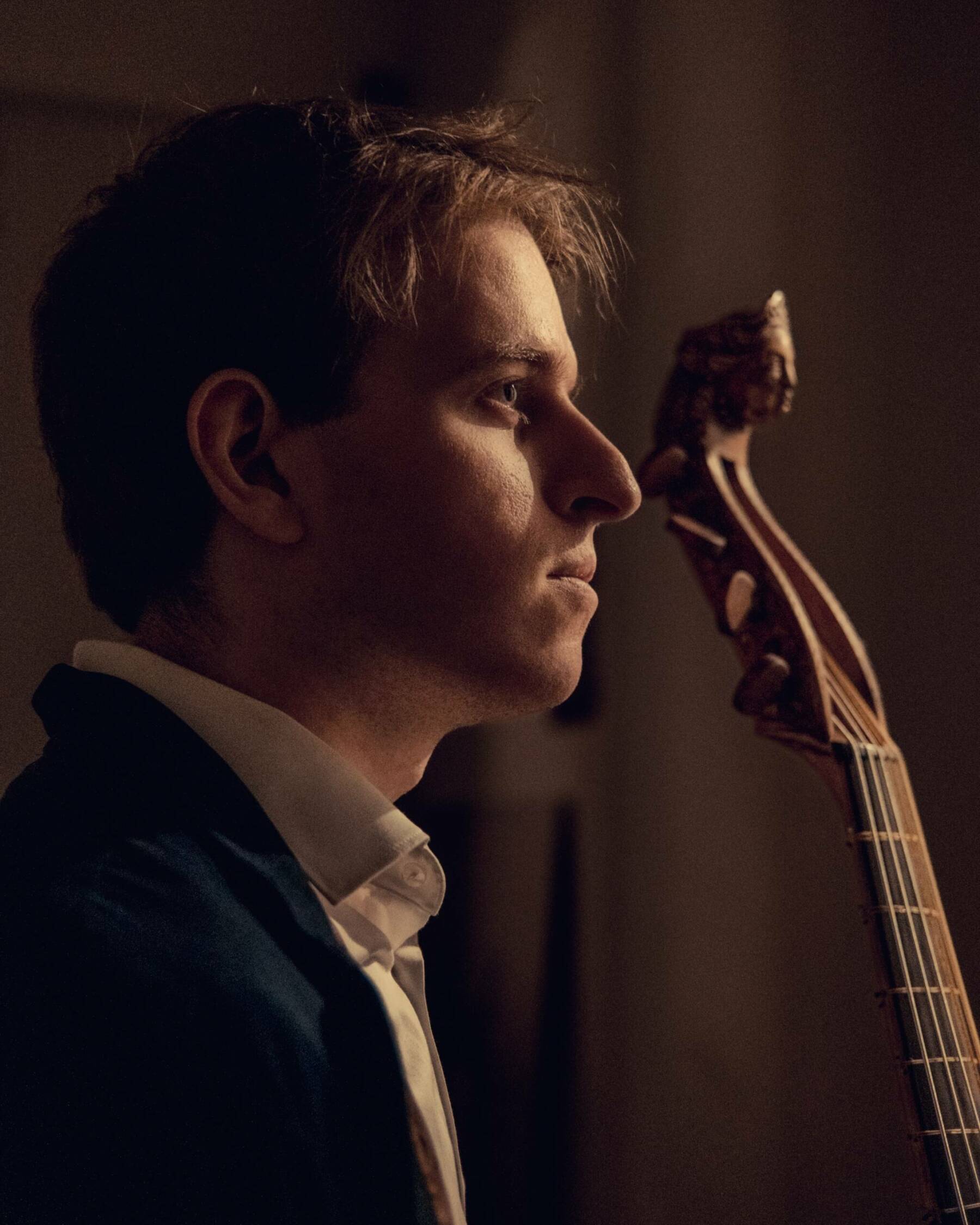The ensemble
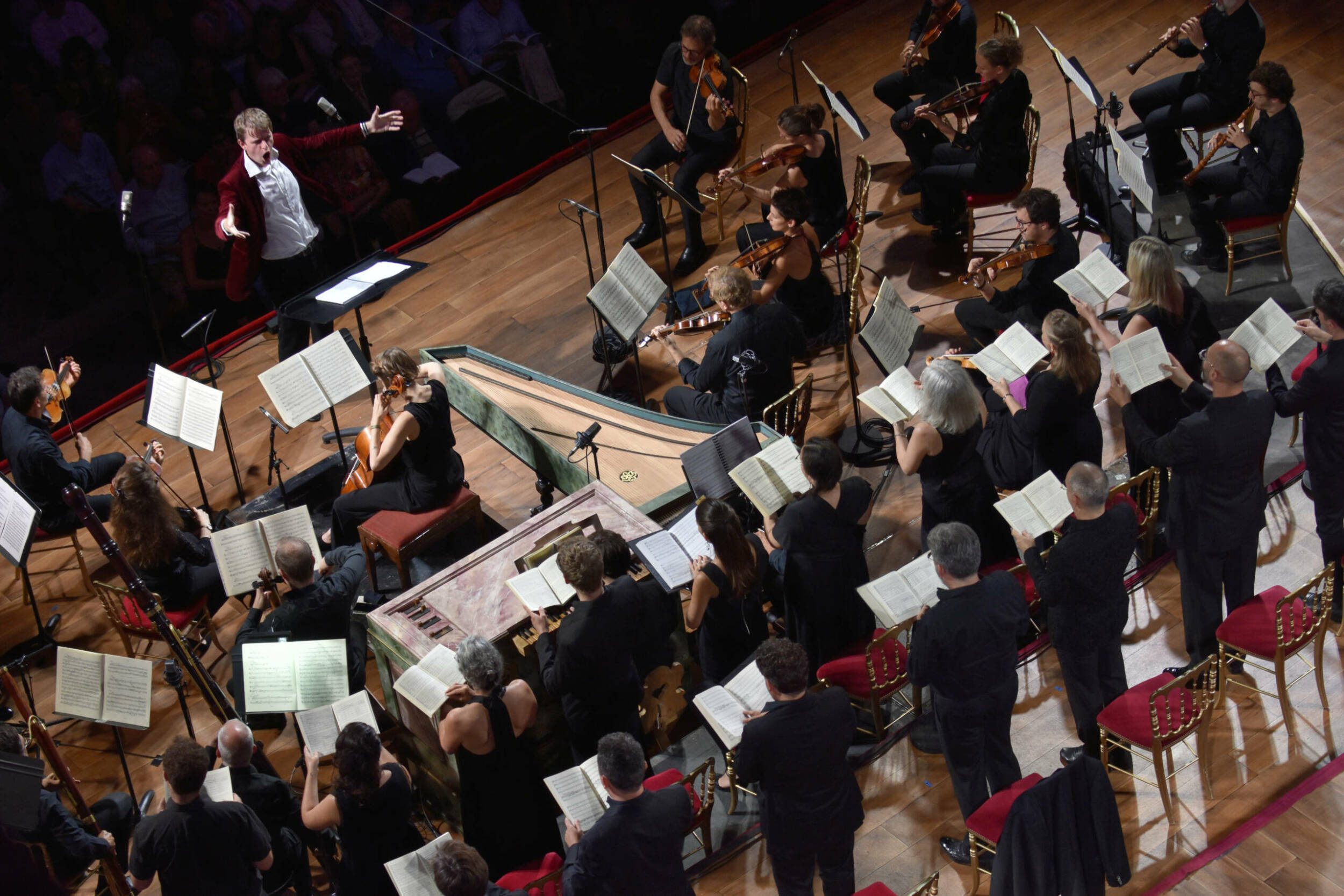
When history sets the tempo
The ensemble is based in Nouvelle-Aquitaine, with a particular focus on Central France
Founded in 2017 and associated with the Château de Versailles, La Chapelle Harmonique brings together a choir and orchestra performing on period instruments. From chamber music to symphonic and choral formations, its activities take place in iconic venues such as the Auditorium of Radio France, the Louvre Museum, the Beaune and La Chaise-Dieu festivals, and in Auvers-sur-Oise and Saint-Denis.
From the outset, La Chapelle Harmonique has aimed to establish its roots in the Massif Central region, a vast area where its conductor and violist, Valentin Tournet, discovered his calling. It was in the verdant landscapes of the Creuse that Alain Corneau’s film Tous les matins du monde, which sparked his passion for early music, was filmed. It is here that he began his studies of the viola da gamba at the age of 5, later studying with masters of the instrument such as Philippe Pierlot and Christophe Coin, eventually becoming the first violist to be nominated for the Révélations at the Victoires de la Musique Classique in 2022.
The ensemble collaborates with prominent personalities such as Jean-François Zygel, Lou de Laâge, and Alex Vizorek, in partnership with institutions like the Comédie-Française and the Cité Internationale de la BD in Angoulême. It is also part of the official program for Paris 2024, recreating the only French musical work to stage the Olympic Games. Its reach extends to overseas territories and internationally: Spain and Colombia in 2023, North America in 2024.
Among its upcoming projects is the revival of Les Fêtes de Ramire, a work combining Rameau, Voltaire, and Rousseau. Its commitment to ecological transition is expressed through the development of the program À vol d’oiseau, which merges music with citizen mobilization for biodiversity, in collaboration with Allain Bougrain Dubourg, president of the Ligue pour la Protection des Oiseaux. In 2026, its new program Le Souffle du Berger will be dedicated to pastoralism, in the framework of the United Nations’ International Year of Pastoralism and Grazing.
The discography of La Chapelle Harmonique is produced by Château de Versailles Spectacles. Its albums have been praised by critics (Diapason d’Or, Diamant d’Opéra Magazine, France Musique’s Disc of the Day, Qobuzissime, etc.).
“The conductor’s conviction is notably expressed through his quest for simplicity and emotion. His direction is both precise and incisive, attentive to phrasing and to the reactions of his musicians, who are now well-rehearsed.” (Olyrix, August 2023)
Shifting from the role of conductor to that of instrumentalist, in a nourishing exchange with musical practices
VALENTIN TOURNET
Valentin Tournet
Artistic Direction and Viola da Gamba
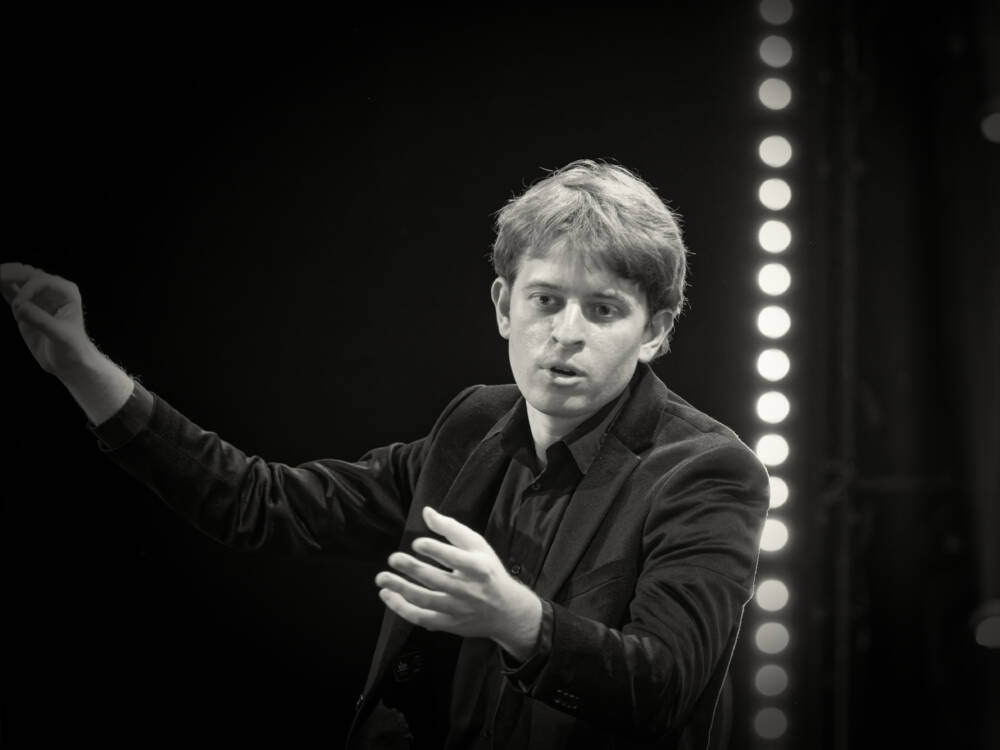
Immersed in a musical environment since his birth in 1996, Valentin Tournet began playing the viola da gamba at the age of 5. He quickly developed a passion for the instrument, studying first at the Conservatories of Issy-les-Moulineaux and Cergy-Pontoise (2001-2012), and then at the Conservatories of Brussels and Paris (2014-2018) under the guidance of Christophe Coin and Philippe Pierlot. He also received counsel from Jordi Savall. His dedication and passion for his instrument led him to become the first violist to be nominated in the Révélations category at the Victoires de la Musique Classique in 2022.
His discovery of the orchestra at the Paris Opera through the Maîtrise des Hauts-de-Seine (2007-2010) sparked his interest in conducting, which he learned under Pierre Cao. At the same time, he met Philippe Herreweghe, who invited him to follow his work with his various ensembles.
In 2017, Valentin Tournet founded the ensemble La Chapelle Harmonique, bringing together a choir and orchestra performing on period instruments. With this ensemble, he explores Bach’s and Handel’s oratorios, as well as Rameau’s stage music, with a focus on returning to the original texts, aesthetic and stylistic questions, while also placing the music in contemporary context.
Valentin Tournet and La Chapelle Harmonique made their debut at the Beaune Festival and at the Royal Opera of the Château de Versailles (Les Indes galantes by Rameau, 2019), at the Auditorium of Radio France and the Saint-Denis Festival (Messiah by Handel, 2019, 2021). They have also held a residency at the Festival of Auvers-sur-Oise (2018-2021) and have engaged in multidisciplinary chamber music creations at the Auditorium of the Louvre, echoing the museum’s programming.
Concerned with nurturing the Creuse region, where the famous film All the Mornings of the World by Alain Corneau was filmed, Valentin Tournet founded the Festival Musique à la source in 2019. This festival aims to reach new audiences, bring repertoire that was previously underrepresented in the region to local communities, and highlight the area’s historical and architectural heritage.
His recordings are released under the Château de Versailles Spectacles label. The first, dedicated to Bach’s Magnificat and Christmas Cantatas, was released in 2019, followed by Les Indes galantes (2021), the first complete recording of Rameau’s Les Paladins, Bach’s Motets (2022), Charpentier’s Te Deum (2023), Fêtes Grecques et Romaines (2024, Diapason d’Or), and Platée (2025).
Instrumentalists
Augusta McKay Lodge
Violinist
Augusta McKay Lodge is a violinist who has enjoyed a flourishing career as a leader and soloist from a young age. Already an experienced leader in the field, McKay Lodge regularly performs as concertmaster with Les Arts Florissants and Les Musiciens de Saint-Julien, and more recently with the Opéra Fuoco at the Théâtre des Champs-Élysées. She has also guest-conducted the Philharmonia Baroque Orchestra Chamber Players, standing in for Richard Egarr. In the past, she has been concertmaster of the Bach Akademie Charlotte, the American Classical Orchestra, and Teatro Nuovo.
Augusta began working with La Chapelle Harmonique in 2020 on the production of Les Indes Galantes.
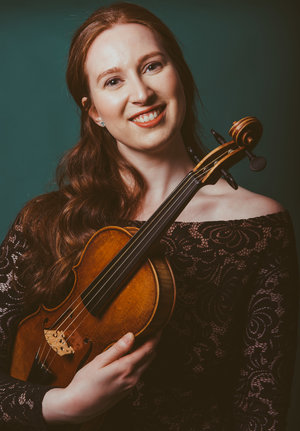
Geneviève Pungier
Flutist
Born into a family of musicians, Geneviève Pungier studied modern flute at the Conservatory of Marmande and then at the CRR of Bordeaux. There, she obtained her Diplôme d’Études Musicales (DEM) in music theory and the certificate in analysis. It was in 2011 that she began studying the traverso with Aurélien Delage.
She then chose to specialize in Baroque music, enrolling at the CNSMDP (National Conservatory of Music and Dance of Paris) in 2014 in the class of Jan de Winne. In 2015, she participated in the European Academy of Early Music in Vannes, taking lessons with Marc Hantaï.
Alongside her studies in Paris, she also teaches private lessons in flute and solfège. She also pursued a degree in traverso at the CNSMDP, a DEM in flute, and studied singing at the 8th Arrondissement Conservatory.
In 2019, Geneviève joined La Chapelle Harmonique.
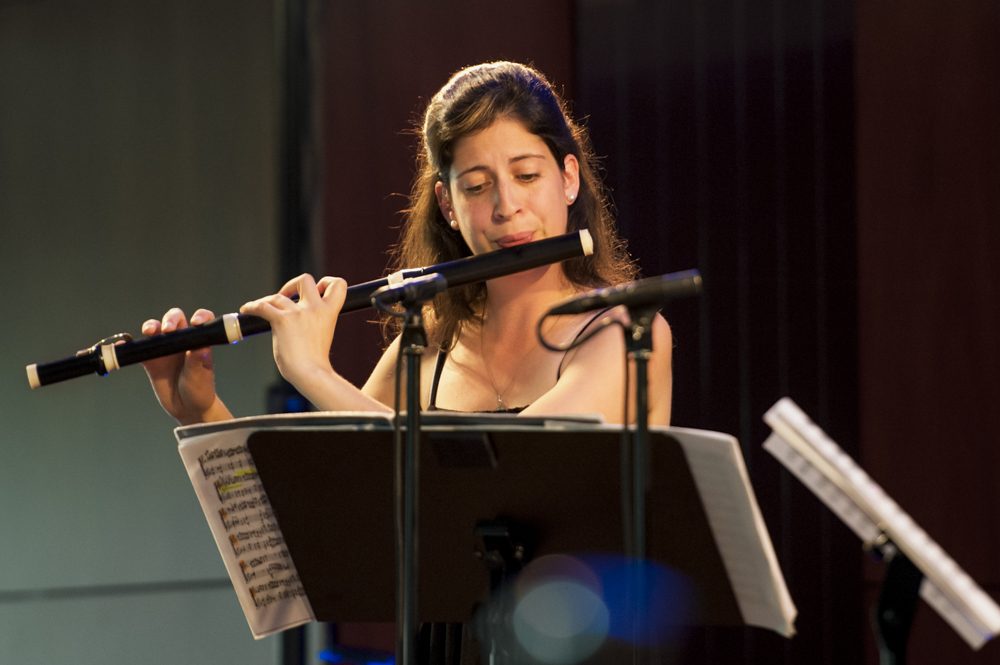
Singers
Mathias Vidal
Tenor
After studying Musicology in Nice, Mathias Vidal studied voice with Christiane Patard and joined the Conservatoire National Supérieur de Musique in Paris, graduating in 2003.
Particularly appreciated for his performances in the French repertoire, he has participated in numerous stage productions of operas by Rameau, Lully, Campra, Boismortier, as well as Monteverdi, Purcell, Cavalli… In the lighter music repertoire, he has performed in Orphée aux Enfers, La Vie Parisienne, La Périchole, Fra Diavolo, and more. His repertoire also includes bel canto roles such as Nemorino in L’Elisir d’Amore, Ernesto in Don Pasquale, Elvino in La Sonnambula, Almaviva in Il Barbiere di Siviglia, Ramiro in La Cenerentola, and Le Comte Ory. He sings both major French Romantic roles and 20th-century and contemporary repertoire.
In recent seasons, he has distinguished himself in the role of Abaris in Les Boréades (Oldenburg, Dijon), Valère and Tacmas in Les Indes Galantes, Thespis in Platée, and the Fourth Jew in Salomé (Paris Opera), Tamino in The Magic Flute (Avignon, Versailles), Ferrando in Così fan tutte (Toulouse), Ernesto in Don Pasquale (Oldenburg), Nemorino in L’elisir d’amore (Rennes, Angers, Nantes), Aristée/Pluton in Orphée aux Enfers (Komische Oper Berlin), as well as many title roles: Platée, Orlando Paladino, Orphée et Eurydice, Le Comte Ory, Cinq-Mars, Faust, Der Zwerg, and more.
He performs both in France and across Europe, in Asia, the United States, and Russia. He regularly contributes to live or studio discographic recordings across eclectic repertoires.
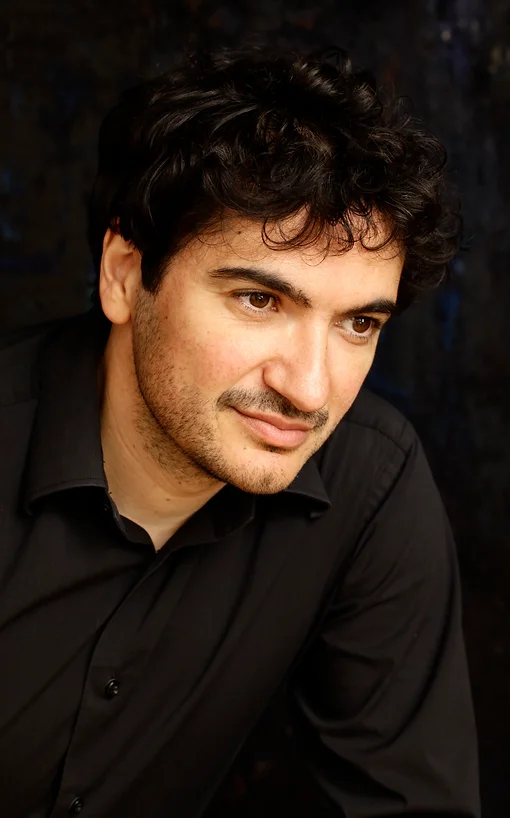
David Tricou
Tenor
Attracted to singing from a very young age, David Tricou trained with Marie-Pierre Desjoyaux to develop his tenor voice. He then entered the Conservatory of Montpellier, his hometown, in 2003, where he studied the lyric repertoire under the guidance of Nicolas Domingues and Françoise Pollet.
In 2007, he began working with Jérôme Correas, where he was introduced to the Baroque repertoire and developed his French haute-contre voice. Two years later, he was admitted to the Conservatoire National Supérieur de Paris. From 2008 onwards, his passion for the Baroque repertoire led him to perform in prestigious venues under the direction of conductors such as William Christie, in Pygmalion and Anacréon by Rameau, during international tours.
Since 2011, David has sung in numerous operas and oratorios, ranging from Baroque repertoire such as Castor et Pollux (the athlete, the high priest) by Rameau, and Venus and Adonis (a hunter, tenor solo) by Blow, to contemporary works, including the creation of Les Contes de la Lune Vague Après la Pluie (Man on the lake, nurse, …) by Xavier Dayer, as well as Classical and Romantic repertoire. Also drawn to musical theatre, he has performed in Liverpool Oratorio (Shanty) by Mac Cartney, Cats (Busterfyer Johns, Mathusalem) by Weber, and Les Misérables (Marius) by Schönberg at the Zénith of Montpellier.
He also performs in recitals, interpreting French mélodies and German Lieder, which he particularly enjoys, accompanied by pianist Masumi Fukaya.
David Tricou has been praised by critics for his vocal and expressive qualities: “[…] haute-contre in the French tradition, a high tenor with a natural voice, powerful and with a very appealing vocal line […]”.
